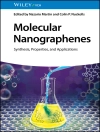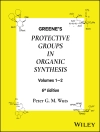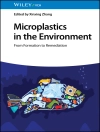Since the first attempts to model proteins on a computer began
almost thirty years ago, our understanding of protein structure and
dynamics has dramatically increased. Spectroscopic measurement
techniques continue to improve in resolution and sensitivity,
allowing a wealth of information to be obtained with regard to the
kinetics of protein folding and unfolding, and complementing the
detailed structural picture of the folded state. Concurrently,
algorithms, software, and computational hardware have progressed to
the point where both structural and kinetic problems may be studied
with a fair degree of realism. Despite these advances, many major
challenges remain in understanding protein folding at both the
conceptual and practical levels.
Computational Methods for Protein Folding seeks to
illuminate recent advances in computational modeling of protein
folding in a way that will be useful to physicists, chemists, and
chemical physicists. Covering a broad spectrum of computational
methods and practices culled from a variety of research fields, the
editors present a full range of models that, together, provide a
thorough and current description of all aspects of protein folding.
A valuable resource for both students and professionals in the
field, the book will be of value both as a cutting-edge overview of
existing information and as a catalyst for inspiring new
studies.
Computational Methods for Protein Folding is the
120th volume in the acclaimed series Advances in Chemical Physics,
a compilation of scholarly works dedicated to the dissemination of
contemporary advances in chemical physics, edited by Nobel
Prize-winner Ilya Prigogine.
Table des matières
Statistical Analysis of Protein Folding Kinetics (A. Dinner, et
al).
Insights into Specific Problems in Protein Folding Using Simple
Concepts (D. Thirumalai, et al.).
Protein Recognition by Sequence-to-Structure Fitness: Bridging
Efficiency and Capacity of Threading Models (J. Meller and R.
Elber).
A Unified Approach to the Prediction of Protein Structure and
Function (J. Skolnick and A. Kolinski).
Knowledge-Based Prediction of Protein Tertiary Structure (P.
L’Heureux, et al.).
Ab Initio Protein Structure Prediction Using a Size-Dependent
Tertiary Folding Potential (V. Eyrich, et al.).
Deterministic Global Optimization and Ab Initio Approaches for the
Structure Prediction of Polypeptides, Dynamics of Protein Folding,
and Protein-Protein Interactions (J. Klepeis, et al.).
Detecting Native Protein Folds Among Large Decoy Sites with the
OPLS All-Atom Potential and the Surface Generalized Born Solvent
Model (A. Wallqvist, et al.).
Author Index.
Subject Index.
A propos de l’auteur
Richard Friesner is Professor of Chemistry at Columbia University.












